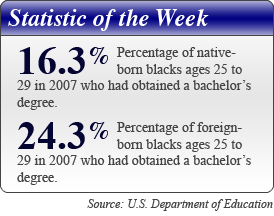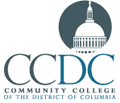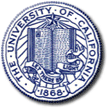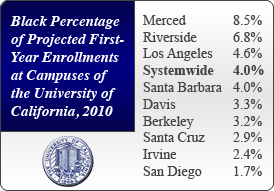Academic Study Attempts to Explain Why Black Athletes Are Faster
 In 1980 Allan Welles, a white man from Britain, won the 100-meter sprint at the Moscow Olympics. The world’s top sprinters at the time, African Americans from the United States, did not participate due to the U.S. boycott of the games. Since that time, no white man has won or even made the eight-man final field in the 100-meter sprint. The event has been dominated by black men from several countries including Jamaica, Canada, and the United States. In 1980 Allan Welles, a white man from Britain, won the 100-meter sprint at the Moscow Olympics. The world’s top sprinters at the time, African Americans from the United States, did not participate due to the U.S. boycott of the games. Since that time, no white man has won or even made the eight-man final field in the 100-meter sprint. The event has been dominated by black men from several countries including Jamaica, Canada, and the United States.
In an article sure to provoke controversy, scientists at Duke University and Cornell University attempt to provide an explanation for the dominance of black athletes in sprinting events at the Olympics and other international track and field competitions. The authors also claim that white athletes have an advantage in swimming competitions.
Their research was published in the British-based International Journal of Design and Nature Ecodynamics under the title “The Evolution of Speed in Athletics: Why the Fastest Runners Are Black and Swimmers White.” According to the authors, “locomotion is a ‘falling-forward’ cycle, in which body mass falls forward and then rises again. Mass that falls from a higher altitude falls faster, down, and forward. In running, the altitude is set by the position of the center of mass above the ground. The anthropometric literature shows that the center of mass in blacks is 3 percent higher above the ground than in whites. This means that blacks hold a 1.5 percent speed advantage in running.” Whites, according to the research, have a body type that gives them an advantage in swimming events.
 The lead author of the study is Adrian Bejan, the J.A. Jones Professor of Mechanical Engineering at Duke University. “Blacks tend to have longer limbs with smaller circumferences, meaning that their centers of gravity are higher compared to whites of the same height,” Bejan says. “Asians and whites tend to have longer torsos, so their centers of gravity are lower.” One coauthor, Edward Jones, an African American who teaches at Howard University and is a Ph.D. candidate at Cornell University, says, “There is a whole body of evidence showing that there are distinct differences in body types among blacks and whites. Whether the fastest sprinters are Jamaican, African or Canadian, most of them can be traced back [genetically] to Western Africa.” The lead author of the study is Adrian Bejan, the J.A. Jones Professor of Mechanical Engineering at Duke University. “Blacks tend to have longer limbs with smaller circumferences, meaning that their centers of gravity are higher compared to whites of the same height,” Bejan says. “Asians and whites tend to have longer torsos, so their centers of gravity are lower.” One coauthor, Edward Jones, an African American who teaches at Howard University and is a Ph.D. candidate at Cornell University, says, “There is a whole body of evidence showing that there are distinct differences in body types among blacks and whites. Whether the fastest sprinters are Jamaican, African or Canadian, most of them can be traced back [genetically] to Western Africa.”
The article can be purchased for download from the journal’s publisher by clicking here.
New College Football Bowl Game Proposed for Conferences Representing HBCUs
 From 1991 to 1999 the football champions of the Mid-Eastern Athletic Conference (MEAC) and Southwestern Athletic Conference (SWAC), two groups made up of historically black educational institutions, met in the Heritage Bowl. From 1991 to 1999 the football champions of the Mid-Eastern Athletic Conference (MEAC) and Southwestern Athletic Conference (SWAC), two groups made up of historically black educational institutions, met in the Heritage Bowl.
 Now discussions are under way to resurrect the game as the Legacy Bowl. The first Legacy Bowl is tentatively scheduled to be played on December 17, 2011. Some colleges in the MEAC have reservations about the plan because the bowl game would mean that the winner of the conference would not be able to compete in the NCAA’s Football Championship Subdivision playoffs. Now discussions are under way to resurrect the game as the Legacy Bowl. The first Legacy Bowl is tentatively scheduled to be played on December 17, 2011. Some colleges in the MEAC have reservations about the plan because the bowl game would mean that the winner of the conference would not be able to compete in the NCAA’s Football Championship Subdivision playoffs.
But the money offered to the two conferences for television rights — reported to be in the range of $3 million — may be too good to pass up. Many of the conference members face financial difficulties and would welcome the television revenues.

WOODROW WILSON INTERNATIONAL CENTER FOR SCHOLARS

Fellowships 2011-2012
Fellowship Opportunity
The Woodrow Wilson International Center for Scholars is announcing the opening of its 2011-2012 Fellowship competition. The Center awards approximately 20-25 academic year residential fellowships to individuals from any country with outstanding project proposals on national and/or international issues. Topics and scholarship should relate to key public policy challenges or provide the historical and/or cultural framework to illuminate policy issues of contemporary importance. Applicants must hold a doctorate or have equivalent professional experience.
Fellows are provided stipends (which include round trip travel), private offices, Windows based personal computers, loan privileges with the Library of Congress, and part-time research assistants.
For more information and application guidelines please contact the Center at:
Tel: 202-691-4170;
Fax: 202-691-4001;
E mail: fellowships@wilsoncenter.org.
You can apply online or download the application from the Center’s website at http://www.wilsoncenter.org/fellowships. Application deadline: October 1, 2010

Vanderbilt University Study Seeks to Determine If Blacks Are Aging Faster Than Whites Due to Increased Levels of Stress
 The Center for Research on Health Disparities at Vanderbilt University is conducting a five-year, $4 million study to determine the effects of stress on the aging process and whether there are racial differences regarding the aging process due to stress. The study, funded by the National Institute on Aging, will examine telomeres on chromosomes that get shorter as the body ages. The researchers will measure these telomores to see if people who report a high degree of stress are aging more rapidly. Among the sources of stress that will be studied are discrimination and racial profiling. The Center for Research on Health Disparities at Vanderbilt University is conducting a five-year, $4 million study to determine the effects of stress on the aging process and whether there are racial differences regarding the aging process due to stress. The study, funded by the National Institute on Aging, will examine telomeres on chromosomes that get shorter as the body ages. The researchers will measure these telomores to see if people who report a high degree of stress are aging more rapidly. Among the sources of stress that will be studied are discrimination and racial profiling.
Coppin State University Criticized for Trying to Help Low-Income Students Who Have Had Difficulty Paying Their Bills
 A state auditor charges that historically black Coppin State University in Baltimore has failed to follow proper procedures in collecting overdue tuition payments. The audit showed that the university has allowed students who have not paid their bills to continue taking classes. The report found that 184 of the 3,763 students who registered for the spring 2009 semester had outstanding balances from previous expenses. A state auditor charges that historically black Coppin State University in Baltimore has failed to follow proper procedures in collecting overdue tuition payments. The audit showed that the university has allowed students who have not paid their bills to continue taking classes. The report found that 184 of the 3,763 students who registered for the spring 2009 semester had outstanding balances from previous expenses.
A university spokesperson noted that the university has “performed the role of transforming lives for minority students who often have limited financial resources. There has been a tendency for us to carry students beyond policy boundaries in order to help them achieve a college degree.”

New African-American Studies Program Debuts at Marshall University
 Marshall University in Huntington, West Virginia, is offering a minor program in African-American studies for the first time. The interdisciplinary program is under the direction of David J. Peavler, an assistant professor of history. Students will be able to enroll in the program this fall. Marshall University in Huntington, West Virginia, is offering a minor program in African-American studies for the first time. The interdisciplinary program is under the direction of David J. Peavler, an assistant professor of history. Students will be able to enroll in the program this fall.
Blacks make up about 5 percent of the 9,300-member undergraduate student body at the university.

UNIVERSITY OF NORTH CAROLINA WILMINGTON

Assistant Professor of Management,
Cameron School of Business
The Department of Management in the Cameron School of Business invites applicants for an Assistant Professor of Management beginning August 2011. Successful applicants should be committed to excellence in teaching and success in research/publication. The ideal candidates will have a primary interest in teaching and research in Strategy with secondary interests in either International, Entrepreneurship or HR/OB. Candidates with an earned Ph.D. are preferred, but ABDs with completion of degree by August 1, 2011 will be considered.
UNCW boasts a beautiful 661 acre wooded campus with approximately 13,000 students, and is one of the faster growing institutions in the University of North Carolina system. The Cameron School of Business is AACSB accredited. Sixty-eight faculty members serve 2,150 business majors, including graduate students in the MBA, M.S. in Accounting, and M.S. in Computer Information Systems, the International MBA, and the Ed.D programs. The department serves over 450 undergraduate majors and offers degrees in three areas: (1) Entrepreneurship & Business Development, (2) Human Resource Management, and (3) Management & Leadership. The Wilmington metropolitan area comprises approximately 200,000 people and features a thriving port, business community, and tourism industry. Bounded by the Atlantic Ocean and the Cape Fear River, Wilmington offers the best in coastal living.
For more information and to apply please visit the Web at http://consensus.uncw.edu. Priority consideration will be given to applications received by 9/1/2010 but applications will be accepted until the position is filled. EEO/AA Employer.

Appointments, Promotions, and Resignations
 • Danny Gatling was promoted to senior director of philanthropy at Guilford College in Greensboro, North Carolina. Since 2007 he has served as regional director of development at the college. • Danny Gatling was promoted to senior director of philanthropy at Guilford College in Greensboro, North Carolina. Since 2007 he has served as regional director of development at the college.
Gatling is a graduate of North Carolina A&T State University and is currently working toward a master’s degree in philanthropic studies at Indiana University.
 • Tracy K. Smith, assistant professor of creative writing at Princeton University, was selected as a fellow of the Rolex Mentor and Protégé Arts Initiative. Under the program, Professor Smith will spend a year being mentored by Hans Magnus Enzensberger, one of the leading poets in Germany. • Tracy K. Smith, assistant professor of creative writing at Princeton University, was selected as a fellow of the Rolex Mentor and Protégé Arts Initiative. Under the program, Professor Smith will spend a year being mentored by Hans Magnus Enzensberger, one of the leading poets in Germany.
 • Hiram Powell was named interim vice president of institutional advancement at Bethune-Cookman University in Daytona Beach, Florida. For the past five years he has served as associate vice president of academic affairs at the university. • Hiram Powell was named interim vice president of institutional advancement at Bethune-Cookman University in Daytona Beach, Florida. For the past five years he has served as associate vice president of academic affairs at the university.
Dr. Powell is a 1976 graduate of Bethune-Cookman. He holds a master of fine arts degree from the University of Florida and a Ph.D. from Florida State University.
 • Lepaine Sharp-McHenry, assistant director of the Eleanor Mann School of Nursing at the University of Arkansas, was appointed to the Rural Health and Safety Committee of the Arkansas Farm Bureau. • Lepaine Sharp-McHenry, assistant director of the Eleanor Mann School of Nursing at the University of Arkansas, was appointed to the Rural Health and Safety Committee of the Arkansas Farm Bureau.
Sharp-McHenry is a graduate of the University of Arkansas and holds a master’s degree in nursing from the University of Oklahoma at Tulsa.
 • Jacob Oluwoye, professor of transportation planning and environmental health at Alabama A&M University, was appointed to the Transportation Research Board of the National Research Council in Washington, D.C. • Jacob Oluwoye, professor of transportation planning and environmental health at Alabama A&M University, was appointed to the Transportation Research Board of the National Research Council in Washington, D.C.
 • David Camps, director of sponsored research and programs at Fayetteville State University in North Carolina, was elected president of the National Sponsored Programs Administrators Alliance of Historically Black Colleges and Universities. • David Camps, director of sponsored research and programs at Fayetteville State University in North Carolina, was elected president of the National Sponsored Programs Administrators Alliance of Historically Black Colleges and Universities.
 • Tanaga Anne Boozer was named acting director of the Office of Technology Transfer, Licensing, and Commercialization at Florida A&M University in Tallahassee. She has been serving as an adjunct assistant professor in the university’s College of Pharmacy and Pharmaceutical Sciences. • Tanaga Anne Boozer was named acting director of the Office of Technology Transfer, Licensing, and Commercialization at Florida A&M University in Tallahassee. She has been serving as an adjunct assistant professor in the university’s College of Pharmacy and Pharmaceutical Sciences.
 • Audrey Tanner was appointed vice president for enrollment management at Saint Joseph College in West Hartford, Connecticut. She was vice president of enrollment management and student affairs at the San Francisco Art Institute. • Audrey Tanner was appointed vice president for enrollment management at Saint Joseph College in West Hartford, Connecticut. She was vice president of enrollment management and student affairs at the San Francisco Art Institute.
Dr. Tanner is a graduate of Smith College in Northampton, Massachusetts. She holds a second bachelor’s degree from Boston University, a master’s degree in organizational management from the University of Phoenix, and an educational doctorate from Nova Southeastern University.
 • Espelencia Baptiste was promoted to associate professor of anthropology and granted tenure at Kalamazoo College in Michigan. She joined the faculty at Kalamazoo College in 2003. • Espelencia Baptiste was promoted to associate professor of anthropology and granted tenure at Kalamazoo College in Michigan. She joined the faculty at Kalamazoo College in 2003.
Dr. Baptiste is a graduate of Colgate University. She earned a master’s degree and Ph.D. in cultural anthropology from Johns Hopkins University.
|
Community College in D.C. Off to a Good Start
 A year ago, the Community College of the District of Columbia was split off from the four-year University of the District of Columbia, a historically black educational institution. The community college has open admissions while stricter standards were applied for admission to the four-year university. A year ago, the Community College of the District of Columbia was split off from the four-year University of the District of Columbia, a historically black educational institution. The community college has open admissions while stricter standards were applied for admission to the four-year university.
There were 960 students when the community college opened last fall. Enrollments now stand at 2,335. Even more encouraging is the fact that 700 of the original 960 students remained in school for the full year and 50 percent of the original freshmen have registered for classes this coming fall.
The community college has 35 full-time faculty members and offers associate degree programs in two dozen disciplines. This fall new programs will be introduced in automotive technology, fashion merchandising, and construction management.

Scholar Finds Continuing Racial Disparity in Media Coverage of Missing Women
 A new study by Mia Moody, an assistant professor of journalism and media arts at Baylor University, finds a significant racial disparity in media coverage for women who have been reported missing. Professor Moody’s research shows that mainstream media outlets were more likely to report on a missing woman if she was white, wealthy, or physically attractive. Women who were black, poor, or overweight were less likely to receive media attention. A new study by Mia Moody, an assistant professor of journalism and media arts at Baylor University, finds a significant racial disparity in media coverage for women who have been reported missing. Professor Moody’s research shows that mainstream media outlets were more likely to report on a missing woman if she was white, wealthy, or physically attractive. Women who were black, poor, or overweight were less likely to receive media attention.
Professor Moody notes that the lack of coverage for missing black women is an important issue. Media attention can often result in the assignment of more investigative resources by local and state law enforcement agencies. Also, media attention often results in more support from the community for victims and families of the missing women.
New Assignment for Education Administrator
 Peter C. Groff, who has been serving as director of the Center for Faith-Based and Neighborhood Partnerships at the U.S. Department of Education, has accepted a position as president of the National Alliance for Public Charter Schools, a nonprofit organization dedicated to advancing the opportunities for students seeking alternative education within the public school systems. Peter C. Groff, who has been serving as director of the Center for Faith-Based and Neighborhood Partnerships at the U.S. Department of Education, has accepted a position as president of the National Alliance for Public Charter Schools, a nonprofit organization dedicated to advancing the opportunities for students seeking alternative education within the public school systems.
Prior to joining the Department of Education, Groff was the executive director of the Center for New Politics and Policy at the University of Denver. He previously was the president of the Colorado State Senate, the first African American to hold the post.
Groff is a graduate of the University of Redlands in California and the University of Denver College of Law.
20 Students From Zimbabwe Receive Scholarships From U.S. Colleges and Universities
 The United States Achievers Program of the EducationUSA Advising Center has selected 20 students from Zimbabwe who will receive full tuition scholarships at colleges and universities throughout the United States. The 20 students were selected from over 500 applicants. The United States Achievers Program of the EducationUSA Advising Center has selected 20 students from Zimbabwe who will receive full tuition scholarships at colleges and universities throughout the United States. The 20 students were selected from over 500 applicants.
The 20 students receive funds for tuition, room and board, travel, books and other expenses for four years of college in the United States. Among the colleges where the Zimbabwean students will enroll are Amherst College, Berea College, Haverford College, Smith College, MIT, and Yale University.
Historically Black South Carolina State University Targets Nontraditional College Students
 South Carolina State University, the historically black educational institution in Orangeburg, has introduced its new Weekend College for Adult Learners Program. The new initiative is targeting nontraditional college students who hold full-time jobs during the workweek. Students in the program will attend classes on campus for four hours on Saturdays. In addition, students will participate in online assignments throughout the week when they have the time to fit academic work into their schedules. South Carolina State University, the historically black educational institution in Orangeburg, has introduced its new Weekend College for Adult Learners Program. The new initiative is targeting nontraditional college students who hold full-time jobs during the workweek. Students in the program will attend classes on campus for four hours on Saturdays. In addition, students will participate in online assignments throughout the week when they have the time to fit academic work into their schedules.
Initially, bachelor’s degree programs in accounting, criminal justice, and social work will be offered by the Weekend College. Master’s degree programs in business administration and rehabilitation counseling are also planned.

HARVARD UNIVERSITY

Fellowships Available,
Radcliffe Institute for Advanced Study
The Radcliffe Institute for Advanced Study at Harvard University awards 40 funded residential fellowships each year designed to support scholars, scientists, artists, and writers of exceptional promise and demonstrated accomplishment.
For more information, please contact:
Radcliffe Application Office
8 Garden Street
Cambridge, MA 02138
617-496-1324
fellowships@radcliffe.edu

Black First-Year Enrollments Dip at Berkeley
 In an effort to boost revenues, the University of California system has made an effort to admit more foreign and out-of-state students. This year 3,674 foreign students were admitted and 1,517 have announced their intention to enroll. A year ago 2,697 foreign students were admitted and 1,048 enrolled. In an effort to boost revenues, the University of California system has made an effort to admit more foreign and out-of-state students. This year 3,674 foreign students were admitted and 1,517 have announced their intention to enroll. A year ago 2,697 foreign students were admitted and 1,048 enrolled.
This year 1,408 African-American students have announced their intention to enroll at University of California campuses. This is up from 1,355 a year ago. Blacks make up 4 percent of incoming freshmen, compared to 3.8 percent a year ago.
But at the University of California at Berkeley, the flagship campus of the university system, 119 blacks have indicated they will enroll this fall. This is down from 124 in 2009 and 144 in 2008. Preliminary figures show that blacks will make up 3.2 percent of all freshmen at Berkeley this fall. This is about half the level that prevailed before California banned the consideration of race in admissions decisions at state universities in 1996.
At the highly ranked University of California at Los Angeles, 205 blacks have indicated they will enroll this fall. This is up slightly from a year ago but down from 235 in 2008.

Recent Books That May Be of Interest to African-American Scholars
 The JBHE Weekly Bulletin regularly publishes a list of new books that may be of interest to our readers. Here are the latest selections. The JBHE Weekly Bulletin regularly publishes a list of new books that may be of interest to our readers. Here are the latest selections.
• At the Dark End of the Street: Black Women, Rape, and Resistance — A New History of the Civil Rights Movement From Rosa Parks to the Rise of Black Power by Danielle L. McGuire (Alfred A. Knopf)
• Beyond Katrina: A Meditation on the Mississippi Gulf Coast by Natasha Trethewey (University of Georgia Press)
• Black Women in Interracial Relationships by Kellina M. Craig-Henderson (Transaction Publishers)
• Brother Mine: The Correspondence of Jean Toomer and Waldo Frank edited by Kathleen Pfeiffer (University of Illinois Press)
• Children of Fire: A History of African Americans by Thomas C. Holt (Hill and Wang)
• Coltrane on Coltrane: The John Coltrane Interviews edited by Chris DeVito (Chicago Review)
• Damn Near White: An African American Family’s Rise From Slavery to Bittersweet Success by Carolyn Marie Wilkins (University of Missouri Press)
• Encyclopedia of African American Music by Emmett G. Price III et al. (ABC-CLIO/Greenwood)
• From Du Bois to Obama: African American Intellectuals in the Public Forum by Charles Pete Banner-Haley (Southern Illinois University Press)
• Hard Times Require Furious Dancing: New Poems by Alice Walker (New World Library)
• His Father’s Son: Tiger and Earl Woods by Tom Callahan (Gotham Books)
• Jury Discrimination: The Supreme Court, Public Opinion, and a Grassroots Fight for Racial Equality in Mississippi by Christopher Waldrep (University of Georgia Press)
• Malcolm X: A Life Reinvention by Manning Marable (Viking Books)
• Nelson Mandela: A Force for Freedom by Christina Scott (Carlton Books)
• Never to Leave Us Alone: The Prayer Life of Martin Luther King Jr. by Lewis V. Baldwin (Fortress Press)
• Tasting Freedom: Octavius Catto and the Battle for Equality in Civil War America by Daniel R. Biddle and Murray Dubin (Temple University Press)
• The Anthology of Rap edited by Adam Bradley and Andrew DuBois (Yale University Press)
• The Words of African-American Heroes edited by Clara Villarosa (Newmarket Press)
• Tradition and the Black Atlantic: Critical Theory in the African Diaspora by Henry Louis Gates Jr. (Basic Books)
• Urban Bush Women: Twenty Years of African American Dance Theater, Community Engagement, and Working It Out by Nadine George-Graves (University of Wisconsin Press)
• When Blackness Rhymes With Blackness by Rowan Ricardo Phillips (Dalkey Archive Press)
Honors and Awards
 • Syrulwa Somah, associate professor of environmental health and occupational safety at North Carolina A&T State University, won an award for the best newsletter article from the American Society of Safety Engineers. • Syrulwa Somah, associate professor of environmental health and occupational safety at North Carolina A&T State University, won an award for the best newsletter article from the American Society of Safety Engineers.
 • Fred Irby III, professor of music and director of the Jazz Ensemble at Howard University, was honored by the National Association for Music Education with the designation as a Lowell Mason Fellow. • Fred Irby III, professor of music and director of the Jazz Ensemble at Howard University, was honored by the National Association for Music Education with the designation as a Lowell Mason Fellow.
Professor Irby is a graduate of Grambling State University in Louisiana.
Grants and Gifts
• Northwestern University received a $10.2 million grant from the National Institutes of Health for a research project on how the disproportionate level of incarceration in penal institutions contributes to a higher incidence of HIV/AIDS in the African-American community.
• Historically black Alabama A&M University received a $300,000 grant from the U.S. Department of Agriculture for a program to assist minority farmers and ranchers take advantage of governmental programs.
• Coppin State University, this historically black educational institution in Baltimore, received a $500,000 grant from the U.S. Department of Energy to finance the installation of a solar energy system to provide the electric power needs of eight campus buildings.
• Historically black Howard University, in conjunction with the Georgetown University Medical Center, received a five-year, $38.2 million grant from the National Institutes of Health to establish the Georgetown-Howard Universities Center for Clinical and Translational Science.
|
 .
.